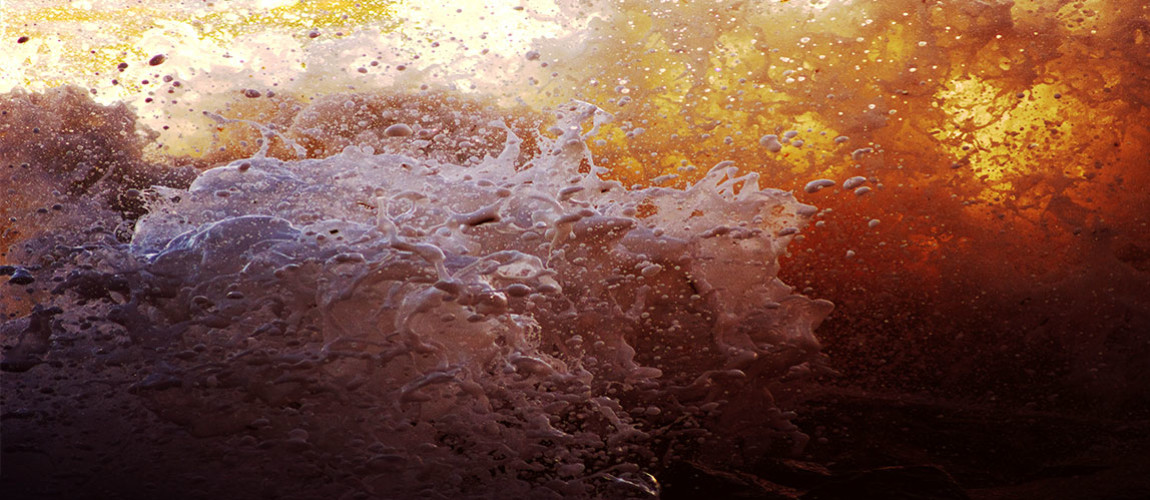A gap in nature
and Antony,
Enthroned i’ th’ marketplace, did sit alone,
Whistling to th’ air, which, but for vacancy,
Had gone to gaze on Cleopatra too
And made a gap in nature.
William Shakespeare, Antonio e Cleopatra, Atto 2, scena 2
In this first publication of Maurizio Albertini’s photography there is much to admire, which goes hand in hand with some of the comments he makes in his introduction. Beyond the technical mastery and the initial impact of beauty such photographs provide there are other qualities that intrigue the observer, something his profession as a psychiatrist and his understanding of the nature of perception has given him.
With so many of the photographs one can almost palpably feel a simultaneous involvement and separation with the images. The experience is dispassionate but within the image there is the excitement of something happening at a distance. It is as if he has placed a veil over the pictures, but the veil is completely invisible. He has instilled them with a detachment.
Sometimes this feeling is enhanced within a photograph. In my opinion, it is no accident that he has included some alluring perspective shots. The beauty of a valley or measuring a person against nature are secondary themes in these shots. Rather they seem like a measurement of time. They present themselves like tunnels into an empty space we are drawn into with the anonymous black shape of a walker heading towards nothing, or as if ancient huts, discarded equipment, rocks and cliffs are cast casually there being sucked into the infinite.
Even the photographs of gushing water seem to embody this aura of detachment. Perhaps the only images which resist this are the marvellous series of photos in the bull ring in the Amphitheatre at Arles, where the action is so explosive and dynamic it is difficult not to be hit by it. One can feel Albertini struggling with this like a fisherman who has hooked a leviathan.
There are social themes the observer can follow. These are obvious aspects of modernity and not the artist’s main concern, but no less important for this. And then, every now and again, there is a hint of sensuality, which Albertini would do well to develop in my opinion.
Indeed, not for one moment does what I might call, using a phrase from Shakespeare, the “gap in nature” convey coldness or indifference. He clearly feels a kindness and tenderness towards the people he portrays and love for the physical world.
As a trained scientist he is in a good position to perceive the detail of natural things and environments, which our culture in the twenty-first century has increasingly come to associate with the beauty of nature and placed within many a discourse on aesthetics. In many of the photographs there is an initial beauty in the detail of nature worthy of sculpture and then sometimes a powerful comparison with people.
Equally, in the social contexts or the people he photographs there is no obvious, superficial irony or satire, which for a lesser artist would be an easy trap to fall into. For example, in the series of photographs of circus performers, one of which won a place as Commended Photographer in the Open Section of the Sony World Photography Awards 2018. There is a good balance in his human beings. A barren, spartan performance with little gratitude to be had under an empty Big Top. At times verging on the monstrous, often a startling vision of the emptiness of modern culture, but then there is also a sensuality in the naked bodies, the clear dedication, discipline, expertise and concentration of a lonely, Cabaret-like performer. The same concentration equalled by the marvellous contortion of the old woman wringing a cloth, which captures a chore that has not changed for centuries and is still common in the mountain villages of Liguria and Provence.
Albertini’s human beings are captured in space, even when we are close to them the space around them dominates and there is often a sense of half-emptiness, but they are captured and treated with love and respect.
There is a lot more I could say about these photographs, but perhaps it is better that I leave the rest to you the reader and observer.
Paul Thomas
July 2018 Imperia, Italy.
